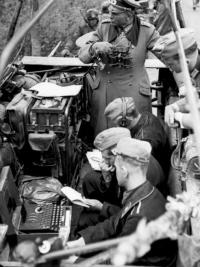
 Peggy Payne is a novelist, nonfiction writer, and private editorial consultant. Her research
for her travel writing and novels has taken her to more than 25 countries.
Peggy Payne is a novelist, nonfiction writer, and private editorial consultant. Her research
for her travel writing and novels has taken her to more than 25 countries.
Her most recent novelSister India is a New York Times Notable Book. She is author of the novel Revelation(screen rights sold to Synergy Films) and a co-author, with Allan Luks, of The Healing Power of Doing Good. She also wrote a book on a clothing firm,Doncaster: A Legacy of Personal Style.
Her articles, reviews, or essays have appeared in publications including The New York Times, Ms. Magazine, Cosmopolitan,Family Circle, Travel+Leisure, The Washington Post, The Los Angeles Times, Chicago Tribune, and many others.
Her work has been cited in Best American Short Stories and published in anthologies including God: Stories, edited by Atlantic
Monthly fiction editor C. Michael Curtis, New Stories from the
South, and Remarkable Reads. An interview with her, "Writing and Revelation," is included in Dale Brown's Of Fiction and Faith: Twelve American Writers
Talk about Their Vision and Work.
WHAT PEOPLE ARE SAYING ABOUT COBALT BLUE
Gorgeously lyrical, Cobalt Blue ventures into dark psychological territory before the light finally rises. This is a bold story, dealing with frightening hypersexuality, unwanted religious experience, and hard-won transcendence. With its Jungian underpinnings and exotic settings, this beautifully written novel will appeal to anyone fascinated by boundaries, taboos, obsession and mystery. Anna Jean Mayhew, author of The Dry Grass of August
Cobalt Blue is an engrossing story of the spiritual awakening of a painter who becomes so obsessed with sex that she nearly loses her sanity. Payne strips away the barriers to female passion; she entices the reader to vicariously experience the artist’s hot and sensual fire. Barbara Hand Clow, author of The Liquid Light of Sex
A zesty, well-paced read—quite entertaining and rich in detail. Pulitzer Prize winner Oscar Hijuelos of Thoughts Without Cigarettes
Cobalt Blue is entrancing and unsettling: a novel that gets at the marrow of sexual and spiritual experience. Peggy Payne is one of our most gifted writers. Angela Davis-Gardner, Butterfly’s Child
First Chapter:
Andie sat poised to reach for her portfolio; she was the next item on the agenda, set to follow Parking Lot. Not exactly star billing. All the more reason to get fired up, to look alive. The club’s private dining room had been turned into a boardroom for this meeting; midday sun glared hard against the French doors. She sat up straighter, breathed faster to get herself going. It takes energy to sell yourself.
“Now,” said Tripp from the head of the table, in his warm- butter Southern-patrician accent, “let us move to the most delightful of today’s new business.”
She put on her happy game face, prepared to be delightful.
“At my request,” he said, “George invited in Ms. Andie Branson, the noted painter, who also claims the distinction of being a lifelong Pinehurst resident.” A flirty wink in his tone, but she couldn’t manage just now to glow back at him. She knew by sight most of this long tableful, had been in school with the guy, Richard, in the round horn rims.
“Let me jump in here,” said George, the head pro, “and quickly tell the board…”
She forced herself to wait. On the sheet before her: Spring 2002 in a fine-lined angular font, like tennis nets and racquet strings. The millionth in a line of hack jobs, this one, if she got it, would be far better than average: a mural on an outer wall of the tennis club’s pro shop. She so needed the money. In recent weeks she’d let work slide, ignoring phone calls, invitations to bid and the no-rush project that was all she had on her schedule. As if cash would simply appear. One house payment remained in her account, and nothing more.
George was talking about posters she’d forgotten doing, and her one portrait of a college president, the watercolor of a Duke- Carolina game. She pictured a line-up of pet portraits and waiting room art, grimly repeating itself into the future, like the grapes-and-dead-fowl wallpaper border running around the top of the room. “She’s top-ranked,” George said.
He was wrapping it up; again she readied herself. “Not to mention,” said whiskey-voiced Eloise Merrill, “that she’s the daughter of that glamorous pair, Zack and Daphne Branson.” Andie felt her scalp shift: prickly tone to that comment. But Eloise, stubby with a bulldog face, probably had suffered a lifelong crush on Zack. Everyone did. She too had a crush on him. In fact, she was in love with both of them, her parents.
The ever-appropriate Tripp ignored Eloise’s interruption. “Andie?” he said.
She was on, finally, her jaw muscles tense from waiting. “A generous exaggeration, George, and I thank you for it.” She unzipped her portfolio. They were scraping back chairs, crowding at her end of the table to look at the large photographs of her work, though she’d brought a small set of copies for each person. Tripp had said no need to set up the “PowerPoint, slide show rigamarole.” People pressed close. “This, you probably recognize, is the billboard of the 6 o’clock news team.”
“I don’t like the idea of people you could identify,” Eloise said.
Andie stifled irritation: she hadn’t been suggesting likenesses. “Generic figures are the best way to go, I do agree.” Faces and shoulders hovered, brushed against the ends of her stray hairs; the barely-there contact made her want to bat away gnats. “This is on a brick wall next to a playground in Charlotte. They wanted a natural background, trees, something to make the place look bigger and give it a little mystery.”
“We don’t need any mystery,” said the man who owned beauty salons, his name she couldn’t remember. Her hand paused on the page; best not to risk a reply to that.
“One thing we’ve got to have,” George said, “is for the figures to demonstrate proper form of each stroke.”
“And showcase the lines we carry,” the shop manager said.
Okay, it’s their wall, I’m used to this, it’s all reasonable. But she wanted to put her forehead down on the table. “That’s fine,” she said, not quite loudly enough. “I can do that.”
People were starting to drift back to their seats. Had she wowed them? No telling how many artists they were considering. This was her livelihood, as well as what passed for her identity.
“Andie, my dear.” Tripp’s voice had that warm sheen, like beautifully polished wood. Probably he’d say he loved life, as apparently one was supposed to do. She couldn’t remember the last time she’d felt that way; probably the first few minutes after coming out of a feel-good movie, however long ago that was. “How about bringing us an estimate?” he said. “Let’s include the mural and then one smaller project I almost forgot to mention. We’ll want all the little niceties, the paper goods, etcetera, to give a unified image or brand, if you will, a nice monogram adaptable for towels, cocktail napkins and such.”
Cocktail napkins? She felt her face go slack. Is he serious?
She cleared her throat to be sure she could speak. “That’s fine, Tripp.” She heard her tone, dead flat, and tried again. “I’ll put that together, thanks.” They set a time for her to come back and report to a committee.
As she got up to go, Tripp said, “Tell that man of yours hello for me. He did beautiful work on my house.” Her gaze paused low on the side of a chair as she scrambled for what to say, and in front of all these people. Before she could get her mouth open, Tripp winced at his blunder: “Tell you what, I’ll say the hello myself.”
She attempted a philosophical shrug, a smile: “All things fade,” she said. He looked so embarrassed she felt sorry for him. As she left, the conversation reverted to paving, gravel, ecological alternatives, with the man who didn’t need mystery insisting: “…I know for a fact, concrete will give you the best value….”
Outside, she headed quickly down the steps. Rushing, as if she could escape the feeling about to overtake her.
This is what my life has come to: napkin jobs. And nothing else.
She’d done none of the work that was hers to do, in 15 years since school. How did I let this happen?
A ball whammed against a backboard somewhere close by, bouncing off the court, the board, the court, the board… She wanted to scream at it to stop. She gripped the handles of her sample book, and hurried, pain pressing like a sharp knuckle at a spot between her eyes.
The sun was barely down when she gave up and went to bed. The afternoon’s busywork had failed to distract her. Whether she got the tennis job or not, she’d failed herself. No point in staying up. Or in getting up tomorrow for that matter; nothing was going to change. Ridiculous to imagine she could get herself to do anything different; far less likely now that she’d realized she was 15 years behind. Tonight she hadn’t managed her usual routines: her crunches, the crossword in the Raleigh paper, getting the day’s Diet Coke cans out of the car… The pitiful drabness of the list, it was putting her to sleep….
Moonlight was all over the room when she woke, the board floor grooved with shadows. She was in an instant fully awake. Surely such brightness didn’t come in at this hour every night, or every full moon, the air full of a wafting happiness that passed through her again and again. Tears sprang up in her eyes; such startling joy: she felt awash in liquid light.
Last night’s clothes that she’d thrown over the back of the chair, jeans still holding the curve of her hips, blue-and-white top, dangling bra, together formed an image of falling water, a torrent seen from a distance.
Her bed seemed floating in light as palpable as clear brilliant water. And in the center of the room a loose coil of shining blue spun. Spiraled upward. Gone. A trick of moonlight against the mirror? In the reflection there, she saw clearly her face, the full upper lip, almost smiling, wide-set heavy-lidded eyes, narrow shoulders, the tops of her breasts.
She widened her gaze to take in the room. What she saw stopped her breath. The sharpness of every object, the jar of mascaras and eyeliner pencils, her canvas shoulder bag on the doorknob: astonishing, as if instantly made real from what had been merely a sketch. Her eyes lingered over each detail, memorizing its new face, awash in gratitude for its existence: the windowpanes, the half-open door to the closet, the woven light and dark of the straw hat she never wore.
Her normal dry routine, daily work schedule, her silent house, the plodding line of clients and errands and repeating scenery had shrunk to no more than a vantage point, a place to stand to take in what was before her.
Her body, naked against the sheet, thrillingly naked to the air, felt boundless. Weightless. Prickly desire to rub her mouth over all she saw, to drink the colors, to die of sex, made her stomach quake, the need in itself a pleasure. She wanted to dissolve into the sensation. She willed it, begged it, to push into her, enter her through every pore…
When she woke again, the bedroom looked ordinary in the grey pre-dawn. Well, of course; what had she expected? The full- moon extravaganza had ended. What she could remember felt dream-like: bright light that was somehow exciting. She sat up, chilly, on the side of the bed, sheet clutched around her against the damp air. She was ungodly thirsty. Her hand, reaching for last night’s water glass, trembled.
“Stop it. I mean it, stop.” Again she’d spoken aloud. To no one. No sleeping hulk waited to rouse and mutter a response. Not for almost 3 months now. No Charlie to reach half-blind from the pillow for the mug of coffee she’d brought him.
 Cobalt Blue - A mysterious brush with the divine catapults Andie into shocking acts until she searches out what has seized her.
Cobalt Blue - A mysterious brush with the divine catapults Andie into shocking acts until she searches out what has seized her.
978-1-78099-808-4 (Paperback) £11.99 $20.95
978-1-78099-807-7 (eBook) £6.99 $9.99
Burned out from work and a recent breakup, Andie Branson, a 38 year old commercial artist in a conservative town in the American South, has a shocking and unexpected religious experience, kundalini rising, the physical manifestation of tantric enlightenment Andie's struggle to regain control of her mind and body is complicated by a too close connection with her glamorous world wandering parents, especially her magnetically attractive father, and by an assignment working closely with a bigoted U.S. senator, the man who, for her, personifies evil. Her story ranges from the elegant little golf town of Pinehurst, North Carolina, to the raucous and shadowy byways of pre-Katrina New Orleans, with pauses in India, Ecuador, and other exotic locations. Andie finds her redemption finally through ecstatic religious ritual, the mysterious healing properties of water, and by claiming and steering the power that has erupted within her.
| Follow this author |
    |
Categories:
0 comments on this article








